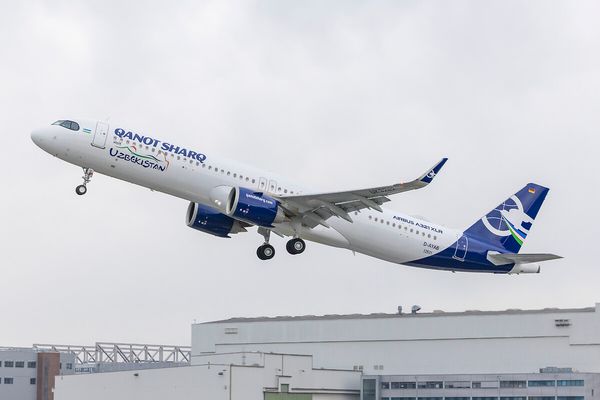Delta Air Lines has joined a coalition of companies that plan to produce sustainable aviation fuel (SAF) in Minnesota. The alliance includes the Greater MSP Partnership, Bank of America, Delta Air Lines, Ecolab, and Xcel Energy. The Minnesota SAF Hub is the first large-scale SAF hub in the U.S.
Companies' Plans to Decarbonize Aviation
SAF is one way the aviation industry plans to reach its net zero carbon emissions goal by 2050. Meeting this target requires collaboration among companies from a variety of industries. The Minnesota SAF Hub aims to produce enough SAF to place traditional jet fuel. Furthermore, the State of Minnesota has also implemented its strategy for decarbonizing the aviation sector.

The companies involved in this initiative have committed to the following goals:
- Protecting the environment at each point of the SAF production process
- Producing SAF through an integrated value chain from the sourcing of materials to using the final product at Minneapolis-Saint Paul International Airport (MSP)
- Using technology and innovation to produce SAF in greater quantities at shorter times
- Supporting research and development (R&D) by universities and the private sector
Companies have announced plans to purchase billions of gallons of SAF over the coming decades. These companies include airlines and firms in other industries heavily reliant on aviation, such as those that conduct frequent business travel. Governments on the state and national levels have enacted policies to facilitate SAF production through their climate policies. However, there needs to be more SAF production to fuel all commercial flights worldwide for even one day.

Benefits of SAF Production
SAF is a jet fuel derived from renewable sources such as feedstocks and used cooking oil. SAF can reduce carbon emissions by up to 80% compared to traditional petroleum-powered jet fuel. Companies prefer using SAF due to its application to today's aircraft engines and ease of transport through existing pipeline infrastructure. These two benefits mean companies can spend less money developing new technology to accommodate SAF.
The coalition has already made significant progress toward facilitating SAF production. Aside from launching the Minnesota SAF Hub, the alliance has secured financial incentives from the State of Minnesota and established partnerships with other Minnesota-based companies. These firms include the Metropolitan Airports Commission, the University of Minnesota, and the Minneapolis office of McKinsey & Company.

The Minnesota SAF Hub alliance plans to meet its SAF targets in multiple phases. The first phase involves incorporating SAF usage at Minneapolis-Saint Paul International Airport, working with producers to increase SAF production, and expanding the existing alliance.
The Political Implications of SAF Production
Subsequent phases will focus on agricultural innovation and using technology to further SAF production. Minnesota has an attractive environment to meet this goal due to its arable land, renewable energy sources, and R&D capabilities. Furthermore, Minnesota Government Tim Walz has launched an SAF tax credit to make Minnesota a desirable state to produce and blend SAF.

Walz said: "The [SAF] tax credit provides $1.50 per gallon of sustainable aviation fuel produced or blended in Minnesota and sold for use in planes departing Minnesota airports. This tax credit, combined with new federal tax breaks, will help grow this emerging industry right here in Minnesota."
Meanwhile, U.S. Senator Amy Klobuchar (D-MN) said: "Homegrown [SAF] is not only an economic generator for communities across the state, it's also an important tool to help us reduce our carbon footprint. The work of this partnership will help expand access to biofuels for Minneapolis-St. Paul Airport, making aviation more sustainable and reducing our dependence on foreign oil."

Klobuchar was one of five senators to introduce the Sustainable Aviation Fuels Accuracy Act in June 2023, a bipartisan bill to create standards for what comprises SAF. She was also involved in other bipartisan bills aimed at incentivizing SAF production.
Delta's Presence in Minneapolis-Saint Paul
Delta Air Lines operates one of its hubs at Minneapolis-Saint Paul International Airport (MSP). Delta uses the airport as its primary Canadian gateway and one of its two Midwest hubs, alongside Detroit Metropolitan Airport (DTW). The airline, which employs approximately 250 million gallons of jet fuel annually, has outlined its own goals for SAF usage at MSP. Delta aims to have SAF account for 10% of its fuel needs by 2027 and 50% by 2035.
Engine Failure Forces United 777 Emergency Landing, Starts Brush Fire at Dulles Airport » How Borders Shape Human Stories » Austrian Airlines Abruptly Terminates Wet Lease with Braathens Regional Airlines »
Comments (0)
Add Your Comment
SHARE
TAGS
NEWS Delta Minneapolis Sustainability SAF MinnesotaRECENTLY PUBLISHED
 Should Students Have Homework? Better After-School Balance
Is homework bad for students? Explore learning benefits, stress, sleep, and smarter workload limits, so after-school time stays balanced.
STORIES
READ MORE »
Should Students Have Homework? Better After-School Balance
Is homework bad for students? Explore learning benefits, stress, sleep, and smarter workload limits, so after-school time stays balanced.
STORIES
READ MORE »
 Air Canada Rouge to Launch Boeing 737 MAX 8 Operations
Air Canada has officially confirmed a strategic shift for its leisure subsidiary, Air Canada Rouge, announcing that Boeing 737-8 (MAX 8) operations are slated to begin in late Q1 2026. The move marks the beginning of an ambitious year-long transition that will see Rouge evolve into an all-Boeing 737 operator.
ROUTES
READ MORE »
Air Canada Rouge to Launch Boeing 737 MAX 8 Operations
Air Canada has officially confirmed a strategic shift for its leisure subsidiary, Air Canada Rouge, announcing that Boeing 737-8 (MAX 8) operations are slated to begin in late Q1 2026. The move marks the beginning of an ambitious year-long transition that will see Rouge evolve into an all-Boeing 737 operator.
ROUTES
READ MORE »
 Qanot Sharq Takes Delivery of First Airbus A321XLR to Transform Central Asian Long Haul Travel
Uzbekistan’s premier private carrier, Qanot Sharq, has officially taken delivery of its first Airbus A321XLR. The delivery, which took place today at the Airbus facility in Hamburg, makes Qanot Sharq the launch operator for the ultra-long-range narrow-body in the Commonwealth of Independent States (CIS) and Central Asia.
ROUTES
READ MORE »
Qanot Sharq Takes Delivery of First Airbus A321XLR to Transform Central Asian Long Haul Travel
Uzbekistan’s premier private carrier, Qanot Sharq, has officially taken delivery of its first Airbus A321XLR. The delivery, which took place today at the Airbus facility in Hamburg, makes Qanot Sharq the launch operator for the ultra-long-range narrow-body in the Commonwealth of Independent States (CIS) and Central Asia.
ROUTES
READ MORE »



